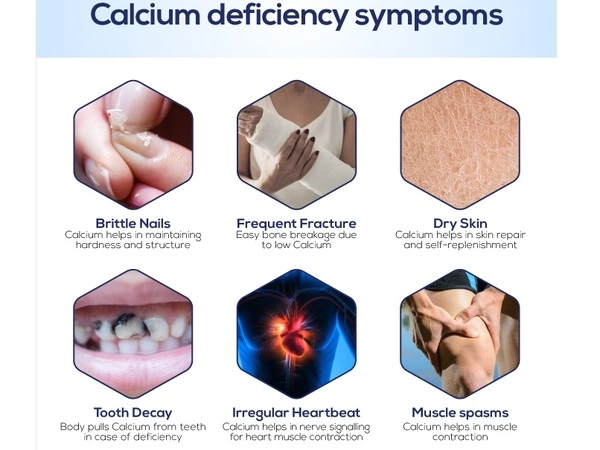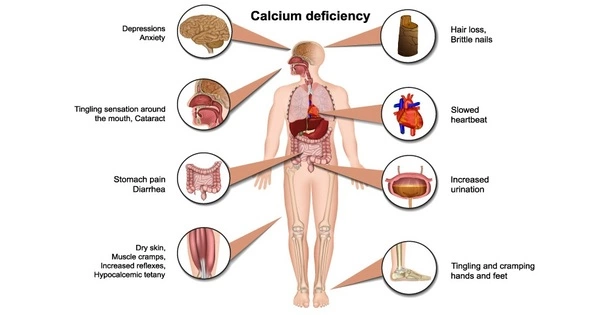Calcium is the most abundant mineral in the human body, and it aids in the construction and preservation of strong bones and teeth. Calcium is required for healthy bones and teeth. It also helps your blood vessels, muscles, neurons, and hormones function properly. Vitamin D and other hormones, including parathyroid hormone, thyrocalcitonin, and cortisol, regulate calcium absorption, excretion, and bone turnover in the blood.
Calcium-rich foods include milk, yogurt, cheese, tiny fish with bones, beans, and peas. Calcium is also found in vegetables such as broccoli, kale, and Chinese cabbage. Tofu, cereals, and juices are among the foods fortified with the mineral. Calcium shortage, also known as hypocalcemia, can result from old age and insufficient calcium in the diet.
Calcium is an electrolyte, which are minerals that carry an electric charge when dissolved in biological fluids such as blood (though most calcium in the body is uncharged). In the short term, a calcium shortage causes few visible symptoms. Although the majority of calcium in the body is kept in bones, some circulates in the blood. This is due to the fact that your body carefully manages the amount of calcium in your blood. Long-term calcium deficiency can result in osteopenia, or low bone mineral density. If neglected, osteopenia can progress to osteoporosis. This raises the risk of bone fractures, particularly in the elderly.

Calcium is an essential nutrient that is required for a variety of human health activities. It is the most prevalent mineral in the body, accounting for 99 percent of what is found in teeth and bone. A relatively low calcium level in the blood can cause no symptoms. People who have low calcium levels for an extended length of time may develop dry scaly skin, brittle nails, and coarse hair. Muscle cramps in the back and legs are very prevalent.
Severe calcium deficiency is frequently caused by medical conditions or treatments, such as diuretics, stomach surgery, or renal failure. Severe deficient symptoms include:
- cramping of the muscles
- numbness
- tingling in the fingers
- fatigue
- poor appetite
- irregular heart rhythms
Deficiency Symptoms:
- Muscle pain, spasms, and twitching
- Tingling in fingers, toes, and face
- Fragile bones prone to fractures
- Brittle nails
- Coarse hair
- Pale and dry scaly skin
- Tooth decay
- Loss of memory
- Confusion
- Insomnia
Diagnosis
Blood calcium levels drop for a variety of reasons. A deficiency of vitamin D, for example, which is essential for calcium absorption, can occur when people spend extended periods of time inside.
Blood tests are used to make the diagnosis. The test is intended to assess total calcium levels. Abnormal total calcium levels may indicate an underlying problem, in which case additional tests, such as ionized calcium and urine calcium, may be required.
The first step in avoiding calcium insufficiency is to ensure that the mineral is present in sufficient quantities in one’s diet. Dairy products, such as milk, yogurt, and cheese, are high in calcium. Calcium is also found in vegetables such as spinach, broccoli, avocado, okra, and kale.
















